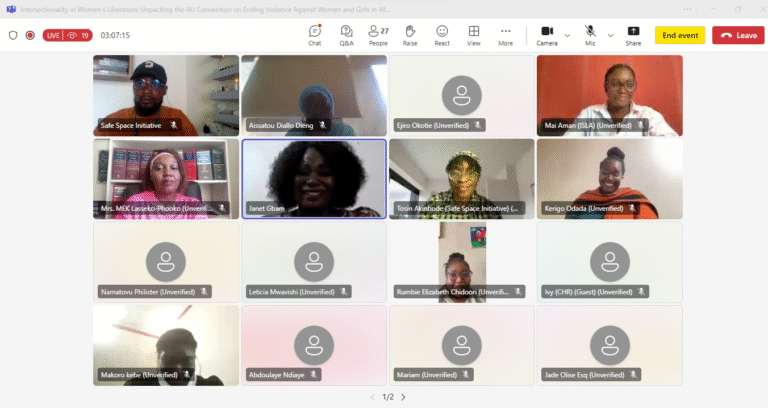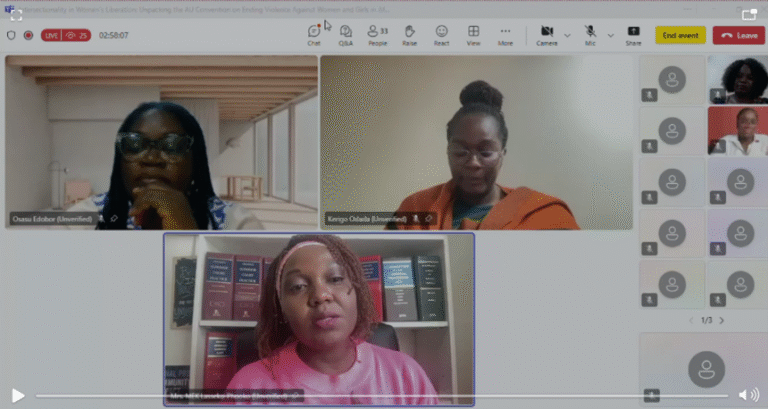Our Blogs

A Webinar On Women's Rights in Africa: "2025 PAN African Women's Day"
On the 17th July, 2025, the Safe Space Initiative and ARTICLE 19 Sénégal & Afrique de l’ouest hosted a powerful and thought-provoking webinar addressing a critical issue on how Africa can meaningfully implement the African Union Convention on Ending Violence Against Women and Girls to mark the 2025 Pan-African Women’s Day. At the center of the conversation was the truth that violence is not one-dimensional, and neither should our solutions be. What made this session stand out was not just the theme, rather it was the depth of its lens, which was, intersectionality. Violence against women is not monolithic. The way it is experienced depends heavily on who the woman is. Her background, her ethnicity, her economic reality, her sexual orientation, her digital exposure, and her physical ability.
And yes!, our speakers didn’t hold back.
Janet Gbam opened the session with an inspiring note of gratitude to the Safe Space Initiative while underscoring the urgent need for accountability in driving the convention’s goals. The conversation then took a deep dive into the intersectionality of gender-based violence, a lens that reveals how different forms of identity (race, class, disability, sexual orientation, socio-economic status, etc.) intensify the risks and realities women face.
Alfred Nkuru Bulakali emphasized that advocacy must evolve beyond generalizations to recognize the complexities of African women’s experiences, while Mrs. Mek Lasseko-Phooko brought this further home by explaining how the convention is a step forward but must center the lived experiences of the most vulnerable. She broke down how the AU Convention finally recognizes the layered identities women carry and the varying realities they face. Her words were a wake-up call for us to consider how privilege plays into the work we do.

Kerigo Odada brought an urgent reality check, reminding everyone that the law is only the beginning. Without mechanisms for accountability and implementation, the Convention becomes just another beautifully worded document. She went further to note the glaring omission of sexual and reproductive health rights (SRHR), which remain key pillars in the fight for gender justice in Africa.
And in this digital age, Osasu Edobor drew attention to a rising yet under-addressed form of violence, which is the technology-facilitated gender-based violence. In an era where online platforms have become both tools for empowerment and spaces for harm, she called for clear and actionable regulation.

Mai Aman wrapped up the session with a grounding reality check that marginalized groups continue to face exclusion, even in well-intentioned conventions. She emphasized the need for inclusive definitions and practical frameworks that can bridge the gap between policy and reality.
The aim for this webinar wasn’t just to scratch the surface; it was a calling. The webinar called us out, called us in, and challenged us to reflect deeply. Intersectionality isn’t just known to be an academic term; it’s the lived reality of countless African women, and if we’re going to advocate for true liberation, we must begin there.
Let this not be the end of the conversation, but the start of a deeper, more inclusive commitment to gender justice in Africa.
Watch the full Webinar here!
